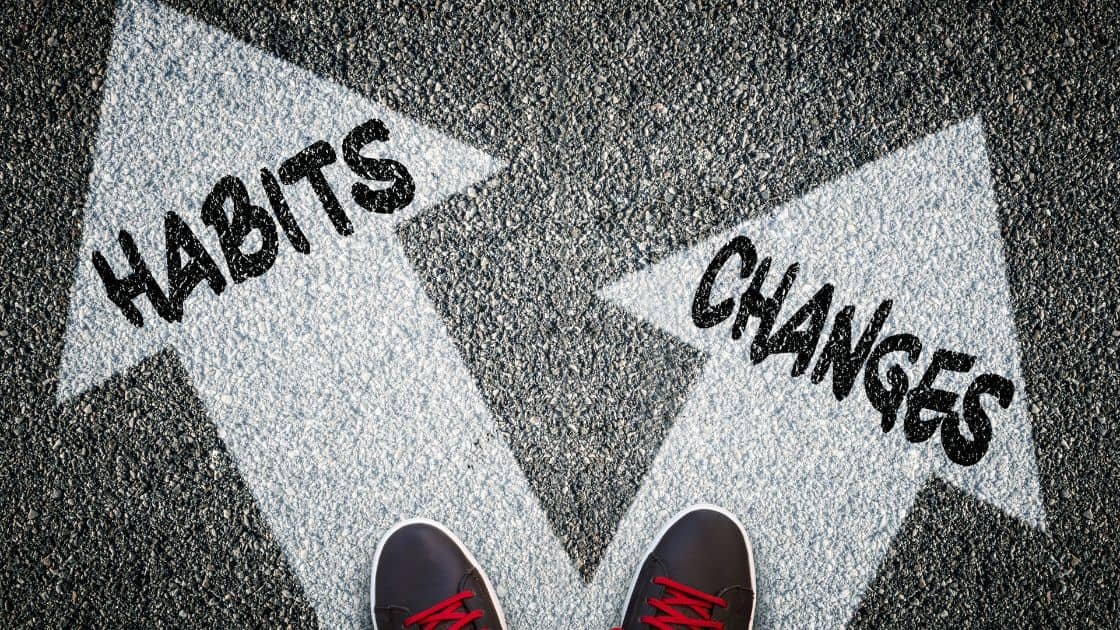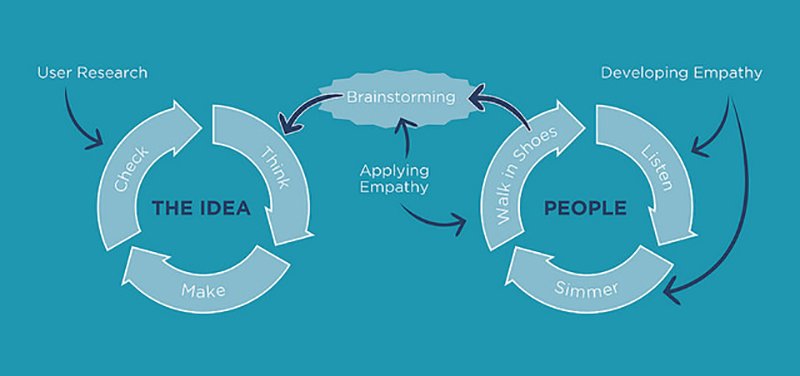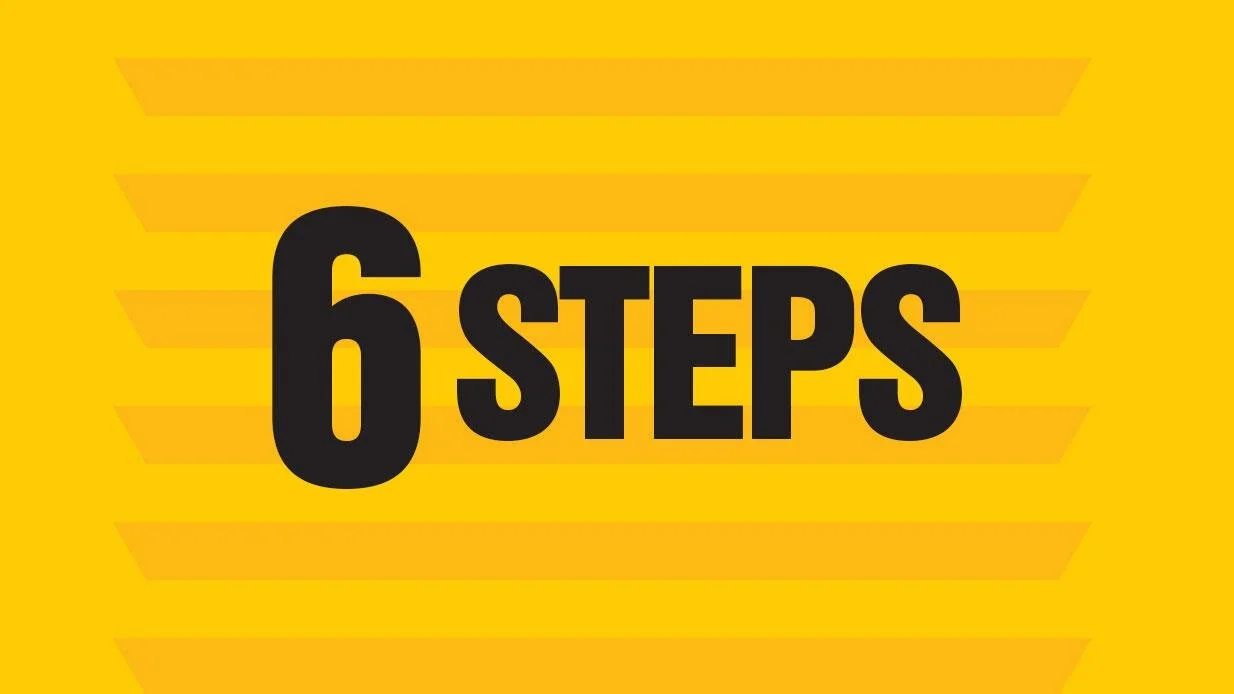A few weeks ago when I was in London, I heard this statement: “You don’t rise to the level of your goals; you fall to the level of your systems.” I thought it was time to take a deeper dive.
If you’re struggling to improve a situation, the issue isn’t you, it’s your system. Change doesn’t fail because we lack the desire to change; it fails because we’re working with the wrong system. We are often told to be more ambitious, set bigger goals, or think bigger. While thinking big has its place, setting a goal is actually the easy part. The hard part is building a system of behaviours that consistently move you toward that goal. A goal is simply a desired outcome, a target, and on the other hand, your system is the collection of daily habits you follow. I think if there’s ever a gap between your goal and your system, your daily habits will always win. By definition, your current habits are perfectly designed to deliver your current results.
Why is this so hard?
Illustration @clinpsych_ind
What I’ve learned about company and team culture is that it begins with a mission. From the mission, you define the behaviours needed to achieve it and the values required to support those behaviours. You then build the people, processes, and systems around those values. To sustain the culture, you must ensure these values are lived every day, including hiring people who align with them.
Activating a cognitive process
Your mindset is a set of beliefs that shape how you make sense of the world and yourself. I think your skills can open doors, but your mindset determines how far you go. According to Stanford University, 80% of people believe that mindset contributes more to success than innate talent. A strong mindset enables you to:
Set bigger dreams
Be grateful every day
Recover faster from setbacks
It's not the smartest people who win, but those who dream big and never give up.
““Great minds discuss ideas; Average minds discuss events; Small minds discuss people.””
Cultural lens
Ask yourself the following questions as I think they may help you understand your cultural viewpoint and how it influences your interactions:
How do I communicate with others?
How do I build trust with others?
How do I persuade others?
How do I lead others?
How do I provide negative feedback?
How do I manage disagreements?
How do I make decisions?
What motivates me?
Reflecting on our results
The subconscious mind is where all the intellectual information is stored and if you know how to do better than you are doing, why aren’t you doing it? It’s because of our subconscious programming. I think our paradigm controls our behaviours. Just check your results and then look at your behaviour patterns, and then you will realise that you have been programmed to do it this way.
““Confidence is just displayed ability.” ”
Context changes perception
Our behaviours are driven by our emotions, our emotions are driven by our perception and our perceptions are driven by context. I think if you change the context by which someone sees the same thing, they perceive it and emotionally respond completely differently. It's almost like tweaking the angle of a mirror; the reflection changes with just a slight adjustment. By altering the circumstances or offering a different perspective, we have the power to change how someone perceives and reacts to the same situation, encouraging empathy, understanding, and even altering behavioural outcomes.
Internal states
To embark on this journey of self-evolution, it's wise to start with modest yet purposeful strides. Initiating small, intentional habits that resonate with the envisioned identity serves as a crucial foundation. Behaviours are tied to cues that precede them and they are reinforced by reward that comes after them. These deliberate actions stand as tangible proof of our commitment to the process. As we engage in these behaviours, we gradually accumulate a reservoir of evidence that we are actively morphing into the individual capable of materialising our aspirations.
Clarify the purpose
Image c/o Indi Young’s book “Practical Empathy”
I was born with practical empathy, the ability to see people for who they are and what they really want. I’m always trying to understand:
• Why are things the way they are?
• What are people looking for?
• Why is this layout the way it is?
• If it is not working on me, why is it working on other people?
You just never know
Sometimes it’s hard to behave with patience when the rest of my life is run on efficiency. If you understand yourself then it should easier to put yourself in somebody else’s shoes, for example, if they are having a tough time or are angry, it’s a good idea to not just dive in and respond to their behaviour. It makes more sense to stop and think about why this person is behaving like that and ask yourself where this behaviour is coming from? Understand it, and if they are just responding emotionally to something and you respond emotionally in return, this behaviour will not get you anywhere. So, it makes sense to hold back, wait and find out the real reason for their outburst.
Accepting responsibility
It’s always less desirable to give nuanced, complex, or sophisticated answers which require input from multiple parts, be it society or yourself. People have always wanted simple answers. Whenever anything happens people need to know whose fault it is and if possible, embody blame into one person, for example, immigrants, the European Union, it’s always somebody else. “It’s never us!” because people love to have a solution that is both not nuanced, not sophisticated and not our fault. Acknowledging the effects of your behaviour and choices will open you up to new experiences, improves your mental health which in turn, allows you to build a sense of control over your life. I think taking responsibility for your own actions is how you’ll gain a deep understanding of your true self.
Habits change behaviours
We all have those habits we wish we didn’t, but just can’t seem to break. It can be a challenge, but with some time and effort, habits can be changed. Here is my list of powerful habits:
- Wake up early
- Practise gratitude
- Spend time with nature
- Choose right friends
- Deepen your relationships
- Know yourself better
- Be ok to say no
- Invest in yourself
- Test your limits
- Invest in experiences
- Diversify your income stream
What fuels you?
Introducing new ideas is hard and most of us think the best way to win people over is to push harder. Organisations and individuals tend to focus on understanding behaviours in terms of internal forces, things like motivation and intent. Therefore, when attempting to launch a new product, and maybe people aren’t buying, the way the mind understands that is to assume that it is because the appeal or should I say the allure is insufficient. When you want to grow and sell to more customers, you usually say: “I need to improve my product, I’ll give the customers a better deal by way of discounts or market yourself better.” And if that’s the problem you imagine, the way you solve it is by elevating appeal. Organisational psychologist, Loran Nordgren says a more effective approach is to focus on the invisible obstacles to new ideas.
“People don’t engage with us for our reasons, they engage with us for their reasons.
”
Fuel vs. Friction
It often takes more than a good idea to make things a success. All around us there are hidden forces which are making it difficult for us to reach our goals, close a sale or convince others to adopt new ideas. There’s a lot of human behaviour that we can explain in terms of two simple forces: friction and fuel. When organisations meet resistance, all too often they focus on adding fuel, for example, building better products, selling harder or marketing better. There is nothing inherently wrong with that, but there is something many organisations fail to do, they don’t subtract friction. Perhaps they could remove the obstacles to allow their audiences, customers, and clients to fully engage with them.
I think changes in behaviour can occur through changes in fuel and friction, where friction slows you down, and fuel pushes you forward. The job of fuel is to elevate and enhance the appeal of an idea using incentives, using an emotional appeal, giving data or evidence. All of this is designed to demonstrate the values the new idea or initiative. Friction on the other hand is the psychological force or set of forces that resist change. Frictions take different forms; we often don’t see them or talk about them. In essence frictions act and drag on innovations and change. When there are no changes in friction or fuel, you tend to stick to the status quo.
Habits change behaviours
We are all creatures of our own habits and beliefs, but we can change those habits and beliefs at any time we want. What might we achieve for ourselves if we are not at the mercy of habits, and instead we were the masters of our habits? I think small daily habits are unparalleled predictors of long-term objectives and this is true for both individuals and organisations.
We go in the direction we face, and we go in the direction we design. Direction determines our destination, we cannot change our destination overnight, but we can change our direction. It’s fascinating what a small change of direction will do. A few decisions in learning, discipline, behaviours, and habits can very quickly make all the difference to our direction.
Here are 8 habits of lucky people:
1. Work hard
2. Complain less
3. Teach others
4. Share credit
5. Be on time
6. Be kind
7. Be teachable
8. Show gratitude
New ways of working demands for new habits. Life is too short to wait for a great day to invest in better life experiences. Contact me via e-mail for a framework guidance meeting.
The twin forces of human behaviour
Illustration: E. Wikander/Azote
The primary motivating factor behind all human behaviour is the desire to avoid pain and the desire (or need) to gain pleasure. My values are “old school”, as I think selling is the process of motivation after you have discovered the reasons why the buyer should buy your products or services. Those of you who are from my school of thought, believe that people don’t buy needs, they buy wants. And then the big question is, how do you build tremendous wants for your products?
We know that if you can make people want your products or services badly enough, they will find a way to justify their purchase. For example, online shopping for luxury goods has soared, doubling its market share from 12% in 2019 to 23% in 2020. This indicates the profound shift in consumer behaviour as well as the results of people shopping from home due to Covid 19. The key to succeeding in these times will be for brands to meet customers’ expectations in a more seamless manner across all of their channels. Especially as brands contend with store closures, travel disruptions and ongoing threat of future lockdowns. Contact me via e-mail for workshops around improving your online customer support, click and collect initiatives and contactless payment procedures.
Life is good here
c/o Getty Images
There is an unstoppable movement towards greater consciousness about what our actions are doing in the world around us. And the younger generations are continuously searching for higher meaning and more sustainable behaviours. I think working together in flat, loosely connected networks, in a peer-to-peer fashion, is behind the most significant changes in human society over past 100 years.
Do you work in an organisation where decision making was clearly expressed and democratically distributed? I wonder what it would be like to work in an organisation where communicating your dreams and ambitions is encouraged. Where the decision making is led by a leader who collaborative and is interested in having feedback from outside of the C suite. Once the decisions have been agreed, no one in the group will have any remains objections and consent to implementation.
What does it cost us to make a decision that no one believes in or is willing to commit to? Are you trying to do too much with everyone involved? Contact me via e-mail for a meeting where we could take a deeper dive into your situation.
6 steps to realise success
According to Dr. David Harold Fink (psychiatrist) there are six steps that will help you achieve success. As today is my youngest daughter’s birthday I will just accept Dr. Fink’s advice.
Set yourself a definite goal.
Quit running yourself down.
Stop thinking about all the reasons why you cannot be successful, instead think of of the reasons why you can.
Trace your attitudes back through your childhood and try to discover where you first got the idea that you couldn’t be successful.
Change the image you have of yourself by writing out the description of the person you would like to be.
Act the part of that successful person you have decided to become.


















